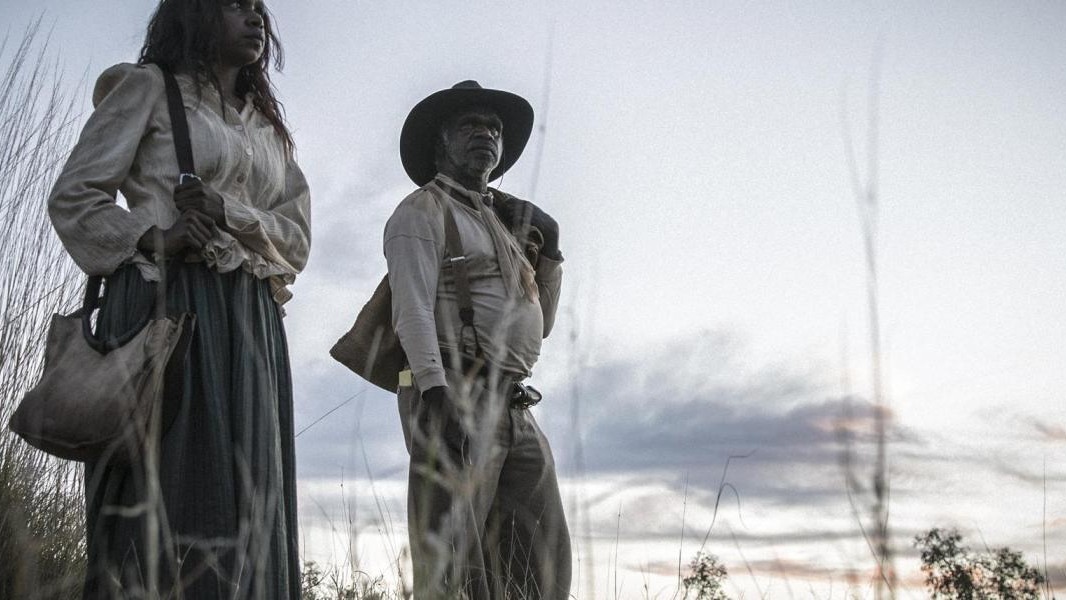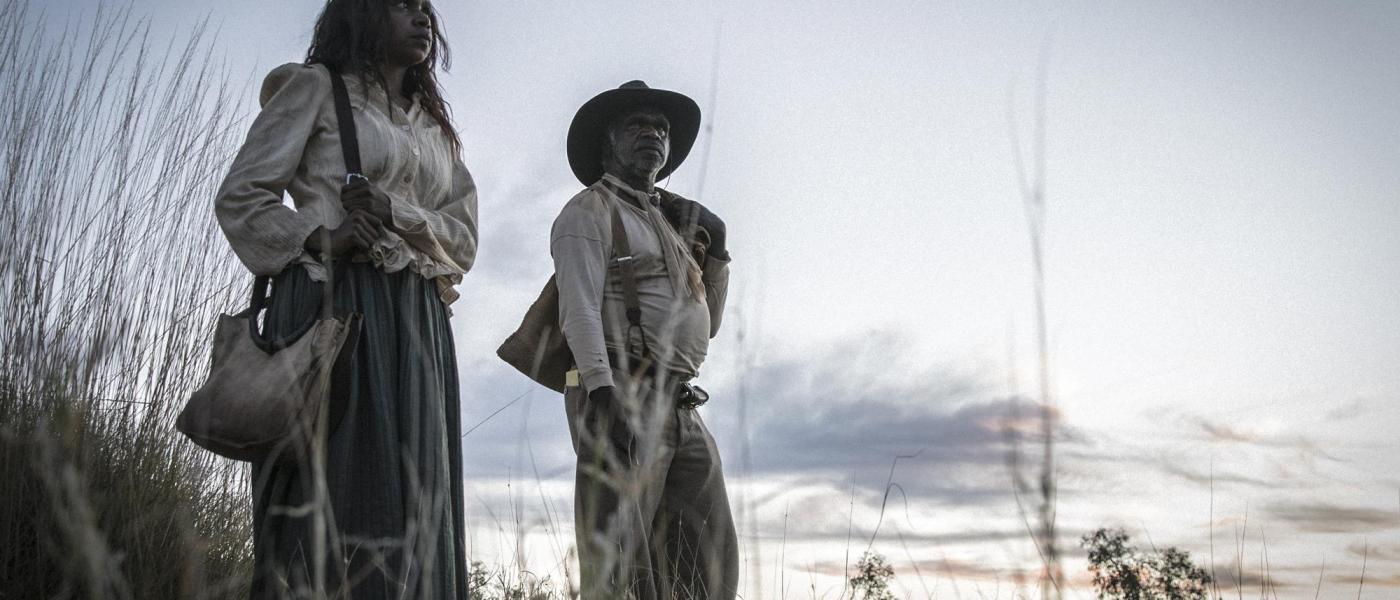In Sweet Country, the Australian Western from director Warwick Thornton, an ensemble cast in the 1930s Outback grapples with an unresolved and hostile race dynamic between white frontiersmen and the indigenous Aboriginal people.
While the relationship between native peoples and white settlers is a staple in the Western genre, it feels compelling and fresh in the Australian setting.
After a murder is committed, a posse of white men chases after Sam (Hamilton Morris), an Aboriginal man, and his wife Lizzie (Natassia Gorie Furber). Some familiar Aussie faces (Sam Neill and Bryan Brown) are matched with a cast of mostly unknown Australians. The ensemble tells a gripping story of the aftermath of a murder, with a plot that builds similar remnants of To Kill a Mockingbird in its discussions of race within the context of crime.
Shot on film in the gorgeous and sometimes bleak Aussie landscape, the film arrives as a fresh international perspective on America’s most archetypal genre.
Shot on film in the gorgeous and sometimes bleak Aussie landscape, the film arrives as a fresh international perspective on America’s most archetypal genre. The most innovative element of the filmmaking style is the editing: throughout the film, numerous shots are shown in advance of when they happen, giving us a foreshadowing of what will happen, but not in the way we expect it to. The sense of inevitable doom this gives makes it all the more riveting as we wait for the flash-forward to catch up to the action, and the sound design gives these moments a memory-like quality. These elements, along with a well-utilized ensemble cast, allow Sweet Country to stand out as a highlight in the crowded international environment of the AFI Film Festival.
In one of AFI’s better Q/A sessions, Thornton revealed that the script was written by his longtime sound editor David Tranter. An Aboriginal man himself, Tranter took a story from his grandfather and adapted it into what this film is, and the character named Philomac, an 11-year-old boy, is based on his grandfather. Knowing this nugget of detail gives even more lasting power to a film that can serve as an allegory for greater topics such as racism and corruption in today’s divided landscape.
Sweet Country will receive a U.S. theatrical release in early 2018. My hope is that the action and Western genre can draw cinephile viewers in, and the nuanced depiction of race in a foreign country can lead to lasting conversation. While the film is extremely specific in its geography, the events are virtually universal to all parts of the world affected by colonialism (read: all parts of the world). Beyond that, I look forward to seeing what’s next for director Warwick Thornton, who seamlessly brought to life a story that feels both classic and topical and a memorable film in all ways.
This review originally ran on November 28, 2017, during the AFI Film Festival
‘Sweet Country’ is rated R for violence, bloody images and for language throughout. 110 minutes. Now playing at The Landmark.
H. Nelson Tracey
Nelson is a film director and editor from Denver based in Los Angeles. In addition to writing for Cinemacy, he has worked on multiple high profile documentaries and curates the YouTube channel "Hint of Film." You can check out more of his work at his website, hnelsontracey.com


